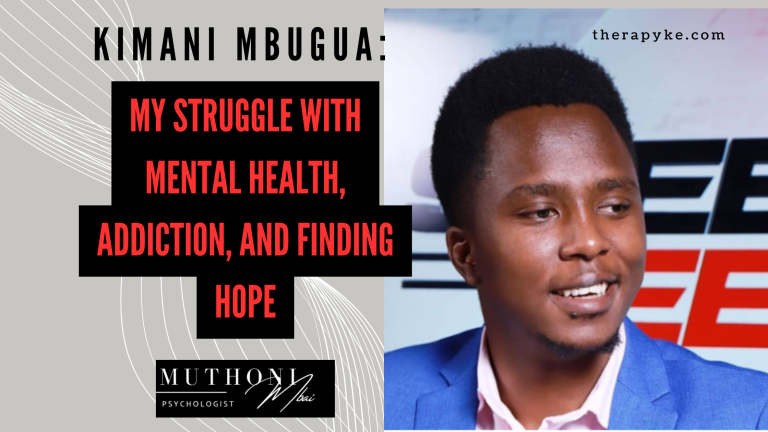
Is Mental Health a Disability?

Is Mental Health a Disability?
In my practice, I have come across different clients with different conditions, ranging from mild to severe.
Then there was this period of time when I encountered a few patients with Borderline Personality Disorder (BPD). After having the patients for around a year or so, I could see their constant struggle in maintaining relationships, suicidal ideations, and even self-harm. Those who were in school were in and out of school, deferring their studies to seek treatment and sometimes not just not being in the right mood to attend a class. Those who were working were out of work for a good number of days. Other days, they could just be at work, but really struggling to do anything.
I remember it reached a point where I once asked myself, shouldn’t this kind of mental health issues be classified as disability? Shouldn’t these patients get all the privileges of people living with disability? Maybe it could make their lives easier, and allow them to seek treatment and support for as many times as they need to. But then I paused to think, how do you convince people, who see a well-dressed, functioning (sometimes) employee that the person has a disability? From what point do you convince them that this person should get all the privileges and considerations that a person living with disability gets?
Mental Health and Disability: Understanding the Connection
Mental health has long been a crucial aspect of our overall well-being, but it’s often misunderstood, particularly when it comes to its connection to disability. This article explores how mental health and disability intersect and addresses common questions about mental illness, impairment, and definitions of disability. If you are seeking support, remember that resources are available at our Facebook Page you can also reach out to us through our Contact Page. You’re not alone in this journey, and reaching out is the first step to understanding and managing your mental health.
Is Mental Health a Disability?
Mental health encompasses our emotional, psychological, and social well-being, influencing how we think, feel, and act. But when it comes to viewing mental health as a “disability,” things get a bit complex. You know why? As opposed to physical disability which anyone can see, some mental health disabilities are not visible at all. At a glance, you will see a fully functional person!
A mental health condition such as anxiety, is not necessarily a disability in itself. Instead, it becomes a disability when it substantially limits one or more major life activities over a significant period. Disabilities are generally defined by their impact on daily functioning. For instance, if someone with anxiety finds it impossible to work, socialize, or maintain basic self-care routines over months or years, their mental health condition might be considered a disability.
In other words, mental health isn’t inherently a disability—but certain mental health conditions can lead to impairments that qualify as disabilities under the right circumstances.
Is a Mental Illness a Disability?
Mental illness and mental health are closely related but distinct concepts. Mental illness includes a range of diagnosable conditions that affect mood, thinking, and behavior, such as depression, bipolar disorder, schizophrenia, and post-traumatic stress disorder (PTSD).
Not all mental illnesses are disabilities. For instance, someone with mild depression may still function effectively, while someone with severe depression may struggle with day-to-day tasks to the point where it qualifies as a disability. The defining factor is the condition’s impact on the person’s ability to perform daily functions. Ideally, if it does not affect your daily functioning for a significant period of time, it’s not a disability!
Imagine a person with bipolar disorder who has a challenging time regulating their energy, emotions, and social interactions. If these challenges persist despite treatment, their mental illness may legally qualify as a disability because it significantly impacts their ability to participate fully in life activities. However, trying to convince people that this person qualify as a Person Living with Disability given their lack of motivation from time to time is really challenging.
Is Anxiety and Depression Considered a Disability?
Anxiety and depression are some of the most common mental health conditions. When we think of anxiety or depression as disabilities, we’re asking if these conditions are severe enough to impair daily life to the point that it’s recognized legally and socially as a disability.
Anxiety and depression can indeed be considered disabilities when they’re chronic, debilitating, and interfere substantially with life activities. For example, imagine someone with severe social anxiety who finds it challenging to leave the house or hold a job because of overwhelming panic. When a condition like this prevents someone from performing essential functions, it may be considered a disability.
Mild or situational forms of anxiety or depression might not meet the criteria for disability, but severe cases where the condition disrupts daily life and function may qualify.
What Is the Definition of a Disability in Mental Health?
According to various mental health and disability rights organizations, a mental health disability is defined by significant impairment that limits major life activities, such as work, social interactions, self-care, and independent living. This impairment must be long-term, typically lasting six months or longer, to be recognized as a disability.
In the case of mental health, a disability isn’t always visible. Unlike physical disabilities, mental health impairments are often internal, making them harder for others to see or understand. Many people with mental health disabilities face challenges, including the need for reasonable workplace accommodations and support systems that allow them to manage symptoms while still living full lives.
Take this patient for example, with severe obsessive-compulsive disorder (OCD), whose condition makes it difficult to perform work tasks within the time and structure expected. This significant impairment to life activities qualify as a mental health disability, provided the symptoms persist over time.
What Is the Meaning of Mental Health Impairment?
Mental health impairment refers to the limitations or challenges that stem from mental health conditions, affecting one’s ability to function in one or more areas of daily life. While not all impairments qualify as disabilities, mental health impairment can be a barrier to a person’s personal and professional life, affecting relationships, work, and even physical health.
Mental health impairments vary widely, and people can experience them in different ways. A mental health impairment doesn’t necessarily mean someone will be recognized as disabled, but it can still be a serious barrier to daily functioning and well-being.
Imagine someone with severe depression who experiences mental health impairment in the form of extreme fatigue, lack of motivation, and difficulty concentrating, making it challenging to keep up with daily responsibilities. While this impairment may not be classified as a disability for everyone, it’s still a significant challenge that requires support and understanding.
Finding Support for Mental Health Challenges
Whether you or a loved one is dealing with a mental health impairment, illness, or disability, resources are available to help. Therapyke.com offers professional therapy sessions to address and manage mental health conditions. You may also seek support on our Facebook Page , a community focused on providing support. Seeking support is a strong step toward building a life where mental health challenges don’t have to be faced alone.
Remember, mental health challenges come in many forms and intensities, but they’re valid and deserve recognition and support. Reaching out for help, staying connected with support networks, and accessing therapy are all empowering steps.
By sharing and understanding these aspects of mental health and disability, we can create more inclusive environments for people experiencing mental health challenges. Whether or not a mental health condition qualifies as a disability, it’s essential to seek support when needed, educate ourselves, and work towards a society that values mental well-being as much as physical health.



